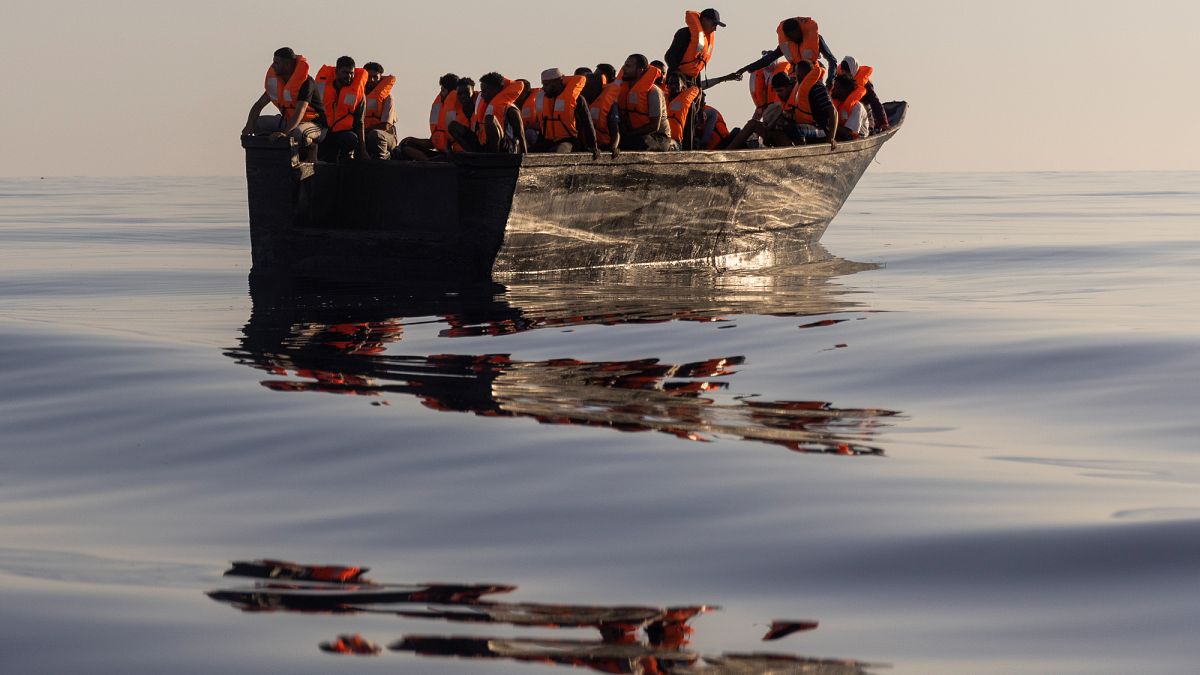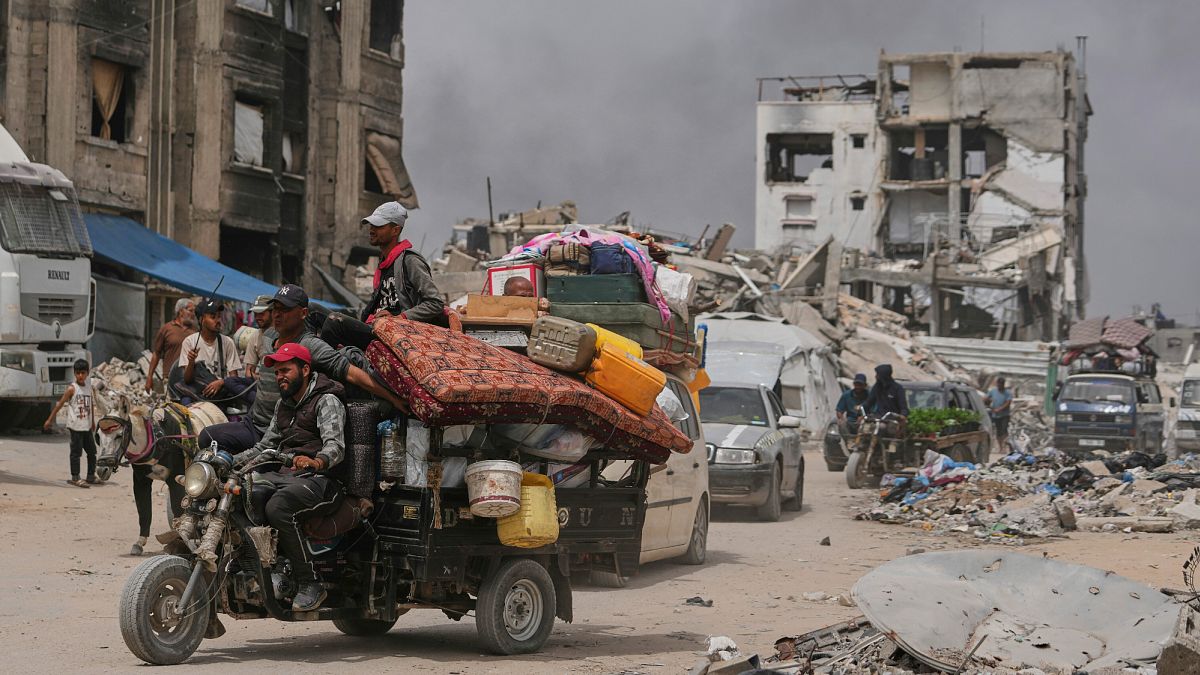EU countries will be able to dismiss asylum applications without consideration and transfer asylum seekers far away under a change to the concept of “safe third countries” proposed by the European Commission on Tuesday.
Under the proposal, non-EU nationals requesting asylum could more easily be transferred to a country considered “safe”, where they would be expected to apply for international protection, in a way quite similar to the UK’s Rwanda deportation policy that was ruled unlawful by the Supreme Court.
The criteria changed
Member states’ authorities may already transfer asylum applicants to a “third safe country”, if this country accepts them and if some provisions are respected.
According to EU rules, a safe third country is a non-EU country where a person seeking international protection is treated according to “international standards”. Safeguards include the protection of asylum seekers from persecution and serious harm, the respect of the principle of non-refoulement, the possibility to receive effective protection under the Geneva Refugee Convention and the possibility to have access to a functioning asylum system, with education and work permit granted in addition to residence rights.
A good example of the application of the “third safe country” under current legislation is the 2016 EU-Türkiye statement: an agreement allowing EU countries (in particular Greece) to transfer asylum seekers to Turkish territory.
Until now however some form of connection between the applicant and the third country was required, such as a previous stay or the presence of some family members there, for the transfer to be lawful.
The Commission is now proposing to change that by granting “more flexibility” to member states when determining how they define a “third safe country”.
A connection between the applicant and the safe third country will no longer be mandatory, and instead member states will be allowed to designate as safe countries through which the asylum applicant transited en route to Europe.
They will also be able to designate as safe those countries with whom they may strike an agreement. They will then need to notify the Commission of such an agreement though no central list of “third safe countries” is foreseen at EU level.
In practice, this means that an asylum seeker could end up virtually anywhere, and far from their country of origin or any country with which they are familiar.
The Commission also proposes that appeals brought by asylum seekers against decisions based on the safe third country concept will no longer have the effect of suspending any transfer. Instead applicants whose appeals are successful may return to the member state from which they have been transferred to make an application.
A divisive political issue
The legislation is a “targeted amendment” of the Asylum Procedure Regulation that was approved during the last mandate, as a part of the major reform of EU migration policy, the Pact on Migration and Asylum.
“Third countries that are safe must also play their part,” said an EU official during a technical briefing on the matter.
At the moment, only five of the 27 EU member states have developed a list of safe third countries, most of which are within Europe. But the easing of the rules could increase the numbers, especially if third countries strike up a deal to accept transfer agreements.
The proposal now moves to the co-legislators — the European Parliament and the Council, representing the member states — who will each adopt respective positions on the planned changes.
Subsequently, together with the European Commission, the three institutions will work to agree on a common text, which will eventually enter into force.
The European People’s Party, the largest group in the European Parliament, said that the proposal “sends the right message” and “is a crucial step towards creating an efficient, manageable, and fair asylum system”, according to a press release by German MEP Lena Düpont, spokesperson for the group on migration issues.
More opposition is expected from the left wing of the European Parliament. Socialist and democrats, Greens/EFA and The Left group are traditionally against stricter rules on migration.
NGOs are also very sceptical of the proposal. “This revision would only further weaken access to asylum in Europe, downgrade people’s rights, and increase the risk of refoulement and of widespread arbitrary detention in third countries,” said Olivia Sundberg Diez, Amnesty International’s EU advocate on migration and asylum.
The Commission conducted no formal impact assessment for the proposal, though it consulted extensively across the member states, the Parliament, the UNHCR and civil society stakeholders, the results of which are presented in a Staff Working Document.
Read the full article here
















